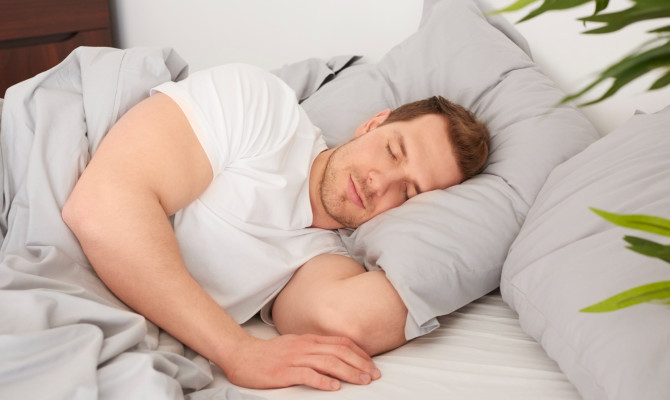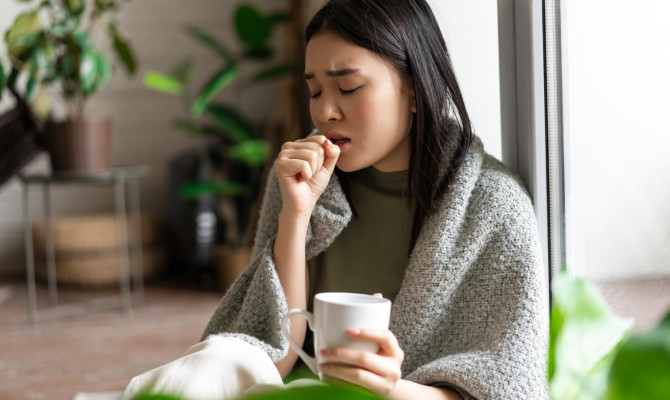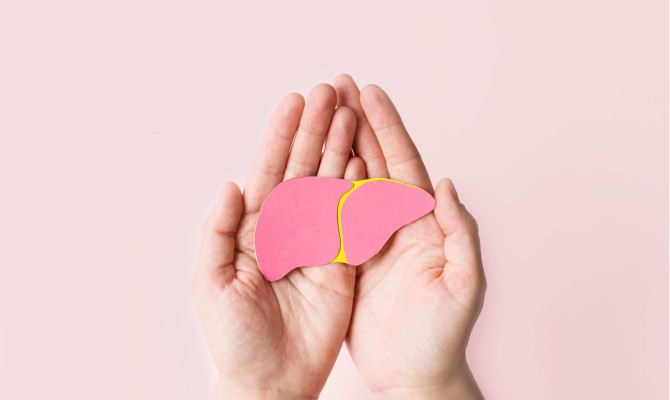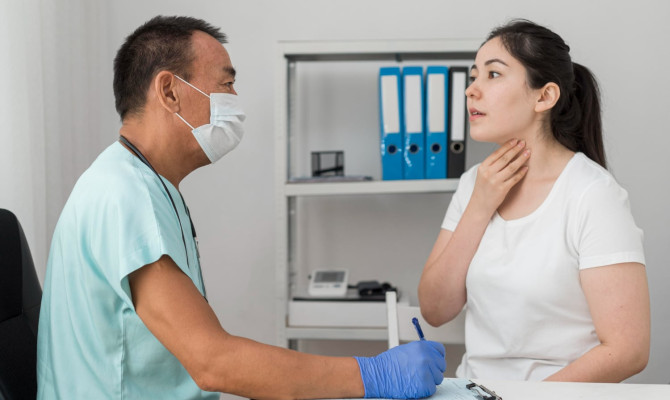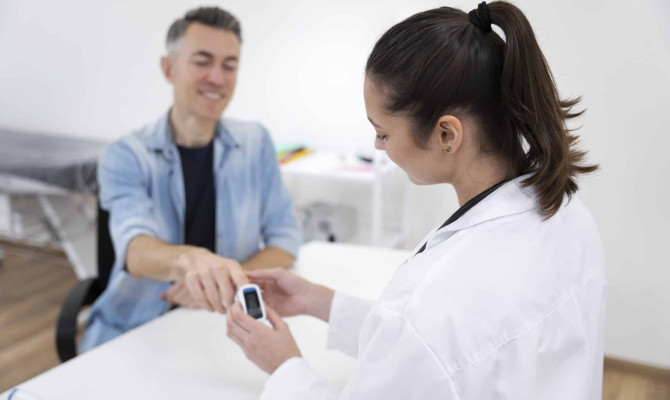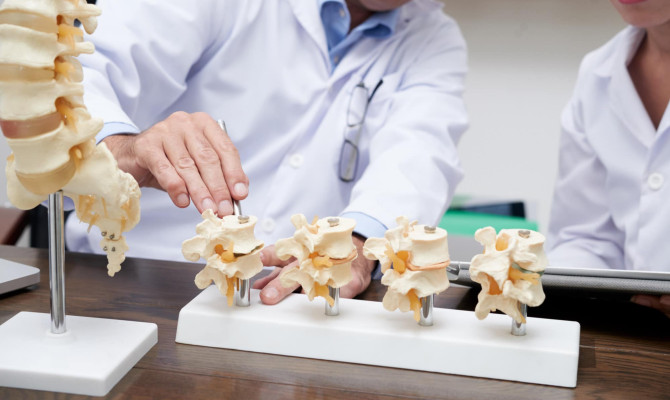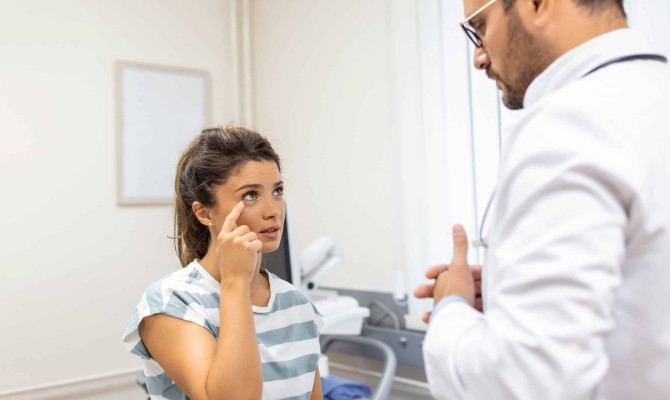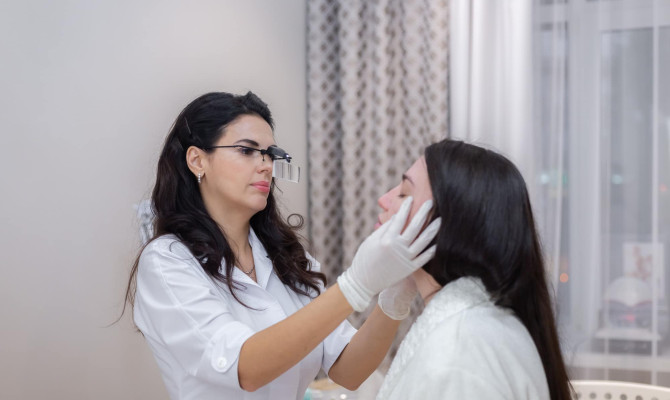What is Acne ? Treatment and Natural Remedies

- Acne
- 14 Aug 2023
Introduction
What is acne?
Acne is a common skin complication causing skin lesions caused due to the clogging of pores under the skin. Our skin has oil glands called the sebaceous gland connected with a hair follicle from which a single hair emerges. This sebaceous gland secretes sebum which prevents the skin from drying out. Normally, healthy skin secretes sebum through skin pores (an opening in the follicle). The lining of the follicles contains skin cells called keratinocytes, and our body generally sheds the keratinocytes.
Acne occurs when the hair, serum, and keratinocytes block the pores. Clogged pores prevent the normal shedding of keratinocytes and sebum secretion from reaching the skin surface, creating a healthy environment for bacteria to grow. The bacterial growth in the skin causes inflammation, swelling, and pain. Finally, the breaking down of plugged follicles spills the bacteria into the proximal area of the skin, causing acne (pimples) 1What is acne? | Researched based study from nih.gov
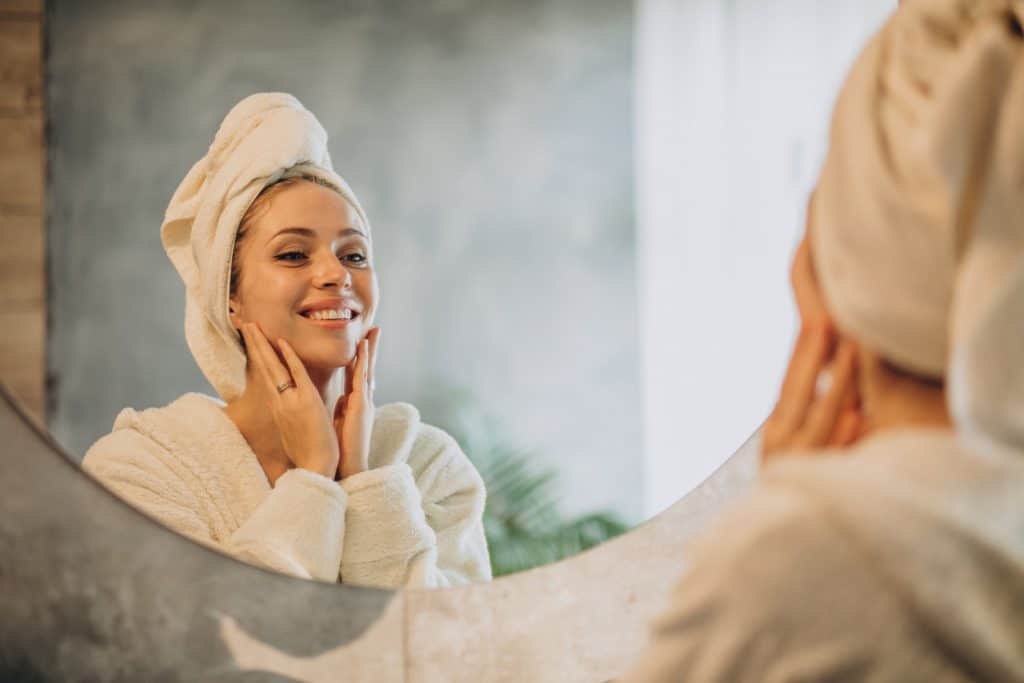
Symptoms
Acne symptoms
The symptoms of acne appear as repeated red spots and puffiness of the skin area, commonly known as pimples. Further, the swelling may become tender and pus-filled. Acne generally occurs in the soft areas of the body, such as the face, neck, chest, shoulder, and back.
Acne can occur in our skin in varied forms, as:
- Pimples (pus-filled boils)
- Blackheads (pores with back top)
- Whiteheads (pores with white tops)
- Nodules (large painful pustules)
- Cysts (painful pus-filled boils)
- Lumps
- Acne may or may not be pus-filled. However, pus-filled acne can rupture and form more prominent blisters 2Symptoms of acne | Researched based study from nih.gov .
Types
Acne types
Acne may be different and can lead to permanent scars on our bodies. It may be of the following types:
- Hormonal acne is due to the overproduction of sebum from sebaceous glands in adults.
- Cystic acne is pus-filled boils and generally causes scars.
- Fungal acne is itchy due to yeast growing in the hair follicles.
- Nodular acne is the extreme form of acne-causing pimples and soft boils beneath the skin.
Causes
Causes of Acne
Acne is caused by sebum, bacteria, and dead skin cells blocking the skin pores. Apart from this, certain factors may contribute acne formation in our skin. They are:
External factors
- Wearing heavy make up and comedogenic products
- Pollution
- Food with high Gylcemic index like confectioneries
- Processed food
- Wearing tight clothes
- Pricking acne
- Dandruff
Internal Factors
- PCOD/PCOS
- Hormonal sensitivity during puberty and pregnancy
- Stress and Anxiety
- Genetics
- Sensitive and Oily skin 3Causes of Acne | Researched based study from Sciencedirect.com
Risk
Acne risk factors
The factors worsen acne are as follows:
- Stress
- Insomnia (difficulty sleeping)
- Anxiety
- Hormonal changes ( during pregnancy and puberty)
- Smoking
- Greasy creams and face lotions tends to clog pores (with high oil content)
- Certain medicines (containing steroids)
- Not following proper cleaning rituals of skin
We have a high risk of developing acne during adolescence (puberty period) due to numerous hormonal changes within our body, which can lead to excess oil secretion, causing acne. However, hormonal acne improves with time and may stop entirely after adulthood.
However, certain foods also improve acne. They are as follows:
- Vegetables (spinach, sweet potatoes, beans, tomatoes)
- Probiotics( such as curds and yogurt)
- Fatty acids(omega-3 and omega-6 fatty acids)(fish such as -salmon, mackerel)
- Low glycemic index food(carrots, beans, lentils, chickpea)
Treatment
Treatment strategies
Each type of treatment depends on the condition’s, age, and severity. A dermatologist may provide medications that may be ,
- Topical
- Oral
Topical medication for acne
The topical medications generally recommended are:
- Salicylic acid
Salicylic acid is available as a lotion or cleanser to help remove damaged skin. Moreover, it dissolves dead cells to prevent them from blocking the pores.
- Benzoyl peroxide
It is available as a face wash or in gel-based form. It removes the surface bacteria and provokes acne, and lower concentrations are soothing to the skin with less irritation. Some examples of benzoyl peroxide lotions are Clearasil® and PanOxyl®.
- Antibiotics
These are medicines that kill and remove surface bacteria. Some examples are clindamycin and erythromycin. They are more effective with benzoyl peroxide.
- Retinoids
Vitamin A derivatives such as Retin-A® and Differin® break up black and whiteheads and help prevent blocked pores. Most people go for retinoid therapy. These medications are used on acne-infected skin to prevent new pimple formation.
- Dapsone
It is a topical gel with antibacterial properties to treat acne.
Oral medications for acne
Oral medications (taken through the mouth) recommended for acne are as follows:
- Isotretinoin
Isotretinoin is an oral retinoid that reduces the size of sebaceous glands, which play a major role in acne formation. Some examples are-Amnesteem® and Claravis®
- Antibiotics
Antibiotics treat bacteria causing acne. Common antibiotics are tetracycline and doxycycline. These are helpful for severe acne.
- Contraceptives
Contraceptives can sometimes help women having acne. The FDA (Food and drug’s administration, USA) has approved several contraceptive pills containing estrogen and progesterone to treat acne. Some are as follows-Estrostep®, Tri-Cyclen®, and Yaz®.
- Hormone therapy
Hormone therapy is helpful if acne occurs during irregular periods caused by excess testosterone hormone. Birth control pills or spironolactone medicine blocks certain hormones at the level of oil glands and hence prevents acne.
Other acne therapies
Other acne therapies are recommended if oral or topical treatment fails to give a reasonable result and leaves prominent scars on the skin. These include:
- Lasers
It is a heat treatment for the collagen area of the skin. It depends on the body’s response to heal and create new skin.
- Chemical peels
Here chemicals are used to remove the old outer skin. After the treatment, new skin replaces with less scar formation.
- Steroids
Steroids are given in the form of injections to lessen acne infection. These are generally given to treat severe acne.
- Dermabrasion
Rotating brushes used to remove upper dead layers of skin. It gives fresh skin look and particularly used to treat acne scar .
Natural remedies
Natural remedies to treat acne
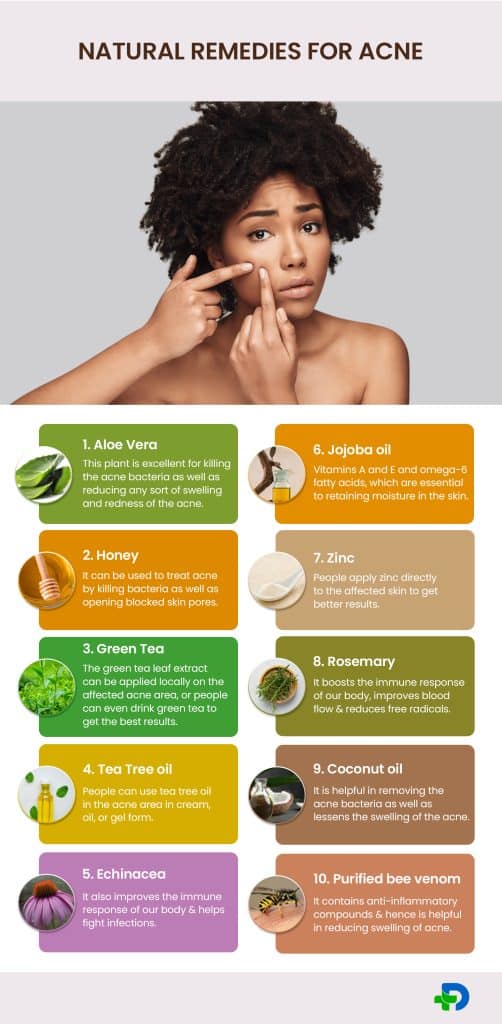
Natural remedies such as herbal extracts are the cures available in nature to treat acne. However, a skin test is always suggested in the small area of the skin prior application of any of the remedies. Some of them are mentioned below:
- Aloe Vera
The leaves of aloe-vera store a gel-like substance and have anti-inflammatory, antibacterial properties. Hence this plant is excellent for killing the acne bacteria as well as reducing any sort of swelling and redness of the acne.
- Honey
It has antibacterial and antioxidant properties and hence can be used to treat acne by killing bacteria as well as opening blocked skin pores.
- Green tea
It has antioxidant properties and hence helps in the breakdown of harmful chemicals of the body. The green tea leaf extract can be applied locally on the affected acne area, or people can even drink green tea to get the best results.
- Tea tree oil
Tea tree oil has antibacterial, antifungal, anti-inflammatory, and antioxidant properties making it a suitable ingredient for acne treatment. People can use tea tree oil in the acne area in cream, oil, or gel form.
- Echinacea
Echinacea, an herbaceous flowering plant have antioxidant and inflammatory properties and hence is helpful in treating acne. It also improves the immune response of our body and helps fight infections. People can use echinacea in cream bases available in stores.
- Jojoba oil
Jojoba oil has antioxidants and anti-inflammatory properties and is rich in vitamins A and E and omega-6 fatty acids, which are essential to retaining moisture in the skin. Moreover, the waxy nature of jojoba oil may help repair damaged skin in acne lesions.
- Zinc
Zinc is a chemical element having anti-inflammatory and hence can be used for acne. People apply zinc directly to the affected skin to get better results. However, it can also be taken orally as a zinc supplement.
- Rosemary
Rosemary having antioxidants, antibacterial and anti-inflammatory properties. It boosts the immune response of our body, improves blood flow, and reduces free radicals.
- Coconut oil
Coconut oil has antioxidant, antibacterial, and antifungal properties. Hence it is helpful in removing the acne bacteria as well as lessens the swelling of the acne.
- Purified bee venom
It is an acidic fluid secreted by the bees from their stingers in self-defense against any danger. It contains anti-inflammatory compounds and hence is helpful in reducing swelling of acne.
Care
Care of acne prone skin
Apart from treatment and remedies, some modification has to be made in our daily life to take care of acne sensitive skin. They are as follows-
- Taking plenty of water
Daily consumption of enough water can keep the skin hydrated and healthy. Making a conscious effort to take 2-3 liters of water daily can help a lot in controlling acne.
- Fresh and multi color food
Eating fresh food and add colorful vegetables and fruit in the plate helps reducing inflammation and increase brightness of the skin.
- Remaining stress-free
Stress increases androgen hormone, which in turn makes sebaceous glands secrete more sebum (oil).People can remain stress-free by spending quality time with family and friends, having an adequate sleep, eating healthy food, doing yoga, meditation, and exercising on a regular basis.
- Keep away from touching acne
Any sort of touching and squeezing of acne should be avoided to prevent its bacterial spread to nearby skin areas. This may make the acne even worse and more painful.
- Oil-free lotions for skin
Oily lotions block the pores of the skin, making the skin more prone to acne. So for preventing acne, only oil-free lotions should be selected for skin care. Cosmetic lotions labeled as oil-free/Non comedogenic should only be preferred.
- Use of right cleansers
Generally, soaps have a high level of alkalinity which further irritates the acne sores. So mild cleansers should only be used to prevent acne from bursting out.
Prevention
Ways to prevent Acne
Specific points to keep in mind to prevent acne breakout-
- Regular washing of the face with an oil-free cleanser
- Frequent washing of face after work-out or exercise
- One should avoid tight-fitting clothes and headbands that cover acne
- Removing face makeup with an oil-free cleansing agent before bed
However, a dermatologist can offer more guidance and support to prevent acne lesions.
Acne can sometimes be hard to manage, but following preventive measures and effective treatment can better manage acne and restore the skin.
People with persistent acne pain should consult a dermatologist for an accurate treatment plan according to their skin type.
Any feedback on this article?
 This Articles content was accurate
This Articles content was accurate Very Informative Article
Very Informative Article I have a question or a comment
I have a question or a comment
 This article contains inaccurate content
This article contains inaccurate content This article was not helpful
This article was not helpful I have a question or a comment
I have a question or a comment
We appreciate your helpful feedback!
Checkout our social pages
References
-
National Institutes of Health
Acne | What is Acne
-
National Institutes of Health
Acne: Overview | Symptoms
-
Science Direct
Acne Vulgaris | Causes












